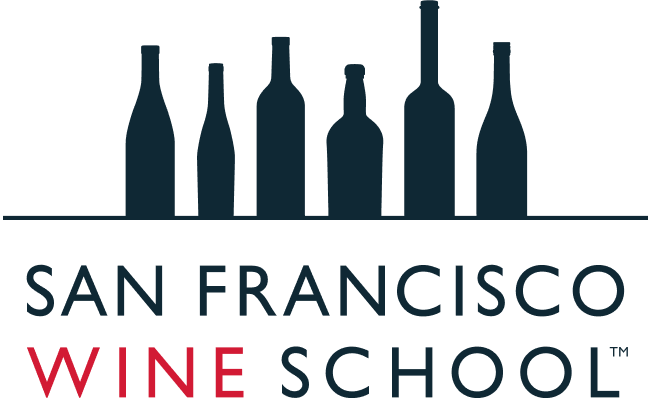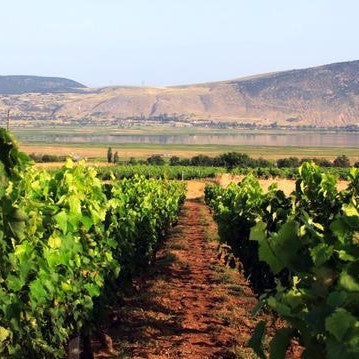Beltrán Domecq y Williams has had an illustrious career. His studies included time at UC-Davis with the illustrious Professor Maynard Amerine, training that later led to Domecq co-authoring with Jaime Sanchez-Briñas and Professor Luis Perez of Cadiz University - a seminal treatise on fractional blending and the solera system while working at Bodegas Domecq. While working there and at Williams & Humbert, the enologist also enjoyed responsibilities in production, quality control, and R&D in Mexico, California, and various areas of his native Spain. A few years ago this former president of the Andalusian Association of Oenologists assumed the presidency of the Regulatory Council (Consejo Regulador) of Jerez and Manzanilla by unanimous vote under the unusual circumstance of his predecessor having been found to have defrauded the regional authority. The storm he entered has subsided, and the office along Jerez's Avenida Domecq in which he works will soon rest above a shiny new visitor center promoting the fine fortified wines that comprise Jerez and Manzanilla. It was there in February that we spoke.
As the administrator charged with the development and implementation of the regulations governing the wines and brandies of the Jerez region and presumedly given to some limited foreknowledge of the region's direction, what aspects of Sherry might wine professionals expect to change?
We've had a situation the past 20 years in which the vineyard surface was excessive. This made Sherry plantings increase from 6000 to 22,000 hectares, provoking production that's given way to a bad effect on prices and quality. We now are in a situation the past 4-5 years that the catalyst of this phenomenon isn't here any longer, and we've regulated the surface to meet our current needs. We're at the starting point to give a higher quality of Sherry which is beginning to be noticed, and we want everyone to earn money--everyone should earn an adequate price correspondent to the quality. Sherry should be reevaluated as to what it should be, and companies would then earn sufficiently to do adequate promotion. We want to have a community in which vineyard owners and bodegas alike should earn enough money. The product itself has evolved in quality; there's a lot of finos and manzanillas sold 'en rama', made without final filtration and other treatments, and so have more flavors and body. These wines aged longer as 'pasada' or 'fino-amontillado' are also spectacular. VOS and VORS are also very interesting when made in Medium or Cream styles.
How might a US sommelier best approach his/her customer to enjoy a glass or bottle of Sherry with their meal?
Sherry is a wine and should be treated as such at an adequate temperature, in a proper glass allowing to see/smell/taste it well, a food pairing suitable to it--Finos should be served with starters and vinaigrette salads and artichokes. It's so important that these dishes are typically considered horrible with any wines, but these wines are successful with them. The living yeast living on these wines not only prevents the oxidation but also consumes alcohol, creates an acetaldehyde smell, and the flor consumes all the glycerol--all aspects which make them appropriate for this.
Nature or man--what's more important to wine? Or is success merely predicated upon harmonizing the two?
In the case of Sherry it's the great combination of the two. Sherry is the most sophisticated man-made wine in the world. It was fortified for commercial purposes to increase stability, to go far abroad when there was no other knowledge in knowing how to do so. The solera system is the most complex system for winemaking you can think of. The recomposition given to wines in the solera system gives complexity that no other wines have. It's a blend of vintages that can go back a hundred years. Man acts but doesn't modify nature. We help it and direct it, and that gives us an incredible range of wines that go from dry to sweet, from pale to dark.
In your career you've met a great many of the most interesting wine personalities. Of those you haven't met for whatever reason, who is the one you'd most care to meet?
I wish I'd gotten drunk with Noah when he was building the Ark! Seriously, there are people like Emile Peynaud whose ability to taste helped me. My father put me into this, my uncle Jose Ignacio was also a great man.
What's the most unexpected successful pairing of food with Sherry you recall?
I think pairing foods and wines is so interesting, and I've read a lot about this. The Canadian Chartier wrote a book called 'Taste Buds and Molecules' where he associates molecules that exist in both. Basically it's so theoretical, because in practice what you want is something that expresses harmony in the products you're having, but could also be the contrasting effects they have on one another. PX is incredibly sweet with powerfully salty and umami-driven Cabrales cheese complement each other in their contrasts.
How does Jerez stack up against the world's other premium brandies e.g. Cognac, Armagnac?
We're in a specific denomination and with a great particularity. The solera system made of butts that once contained Sherry relates directly to that; it's where we are and how we do it. It's brandy with great personality, accented by these barrels that give it notes of fino, amontillado, oloroso, and PX. The 'holandas' degrees of 65-80% alcohol can give certain volatile components, the congeners, give specific qualities.
You've had an illustrious career having written a seminal treatise on fractional blending, overseen the production of Sherry wines while helping to direct bodegas including one which shares its name with you, and now the presidency of the Consejo Regulador of Sherry and Brandies of the Jerez region. Clearly your life has been inextricably linked to these wines and this region. If you could clone yourself, create second Beltrán Domecq living simultaneous to the man of Sherry and Jerez, where would he be and what would he do?
Naturally I love nature and love ornithology, enjoy exercise by walking, and would watch birds while drinking sherry. I'm also a land-owning shooter that likes to preserve nature. I like to shoot birds and small game.
You've recently written the book 'Sherry Uncovered'. What's the next chapter; that is, what's the future of Sherry?
The future of Sherry is quality, value, it's gastronomy, and the work that this represents. Communication, publicity, and a lot of working to develop it is my future.
Gain your Sherry Wine Specialist certification through our Certified Sherry Wine Specialist Class.
Check out our full schedule of programs, workshops and public events. Private, customized experiences and corporate training is also available.


